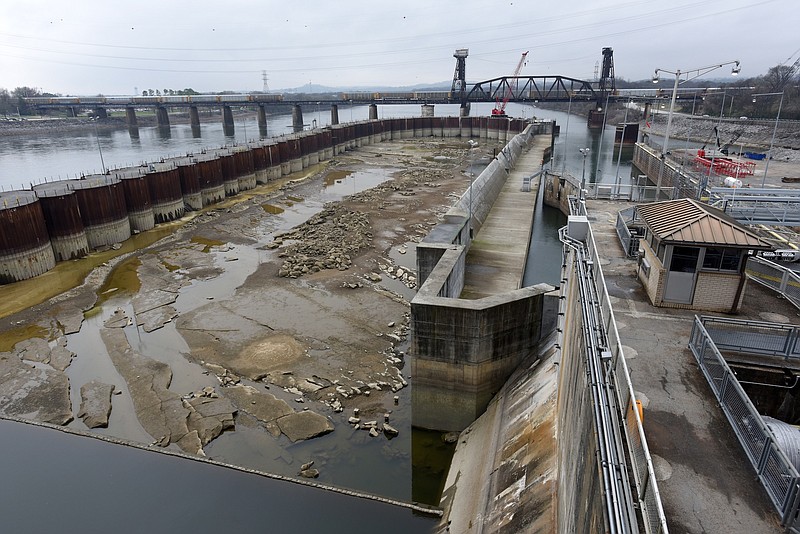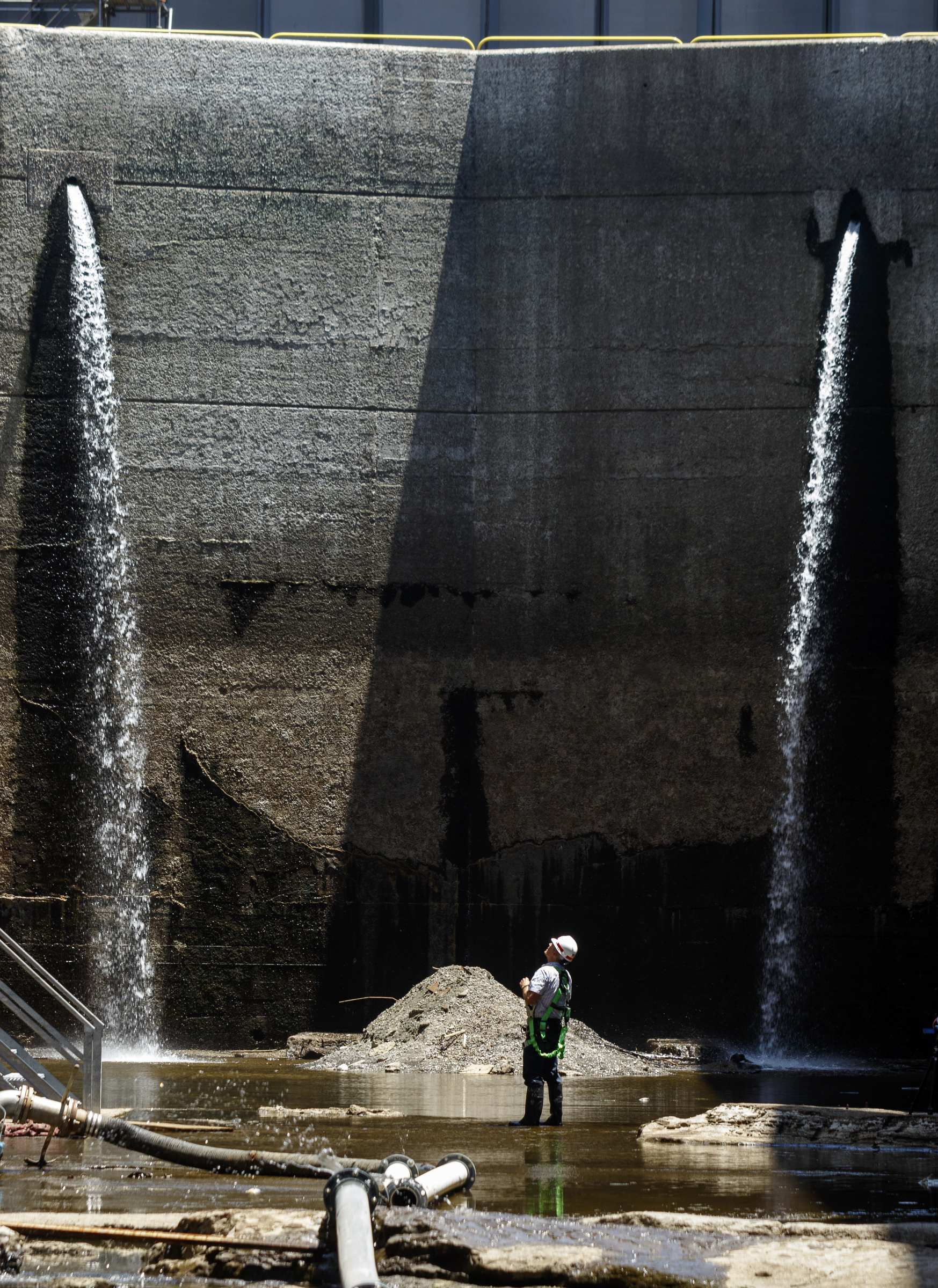Construction of the new Chickamauga lock in Chattanooga is getting its biggest boost since the federal stimulus program was adopted in the midst of the Great Recession eight years ago.
The U.S. Army Corps of Engineers has agreed to allocate another $37 million to continue work this year on the new and bigger lock being built at the Chickamauga Dam..
The funding level for the lock project included in the Corps' 2017 work plan released this week is nearly double what the Corps first projected last month when Congress adopted the omnibus spending plan for the balance of fiscal 2017. It also marks the third year of sustained funding for the new lock since it stalled because of a lack of money in the Inland Waterways Trust Fund in 2015.
"This funding will continue construction of Chickamauga lock for the third consecutive year, which is good news for not only Chattanooga, but for all of East Tennessee because it will help keep 150,000 trucks off I-75 and keep the cost of shipping goods low for manufacturers across the state," said U.S. Sen. Lamar Alexander, R-Tenn., the chairman of the energy and water appropriations panel which oversees the Corps of Engineers.
The new lock will replace the aging, smaller lock at Chickamauga Dam, which was built in 1940 but suffers from problems with "concrete growth" in its rock foundation. The bigger lock, which is 110 feet wide and 600 feet long, will be able to handle six barges at a time, compared with only a single barge that can now fit in the existing 60-by-360-foot lock.
River barges can carry heavy freight on the water, usually at lower costs, and helps to limit traffic on highways and railroads. But without a replacement lock, the existing, crumbing lock could eventually force the lock closure at Chickamauga Dam, shutting off 318 miles of navigable river above Chattanooga on the Tennessee River and its tributaries.
The final omnibus budget plan adopted by Congress in April provided $6.038 billion to the U.S. Army Corps of Engineers - a record funding level in a regular appropriations bill. The bill made full use of the Inland Waterways Trust Fund revenues for water infrastructure projects and provides the biggest allocation for the Chickamauga lock since the federal stimulus bill, adopted in 2009, allocated $52 million for the new lock construction.
"The $37 million fully funds what the Corps said is its capability for this project in the current year," said Cline Jones, executive director for the Tennessee River Valley Association and the Tennessee-Cumberland Waterways Council, which represents the barge industry.
But Jones and others acknowledge that future funding to finish the $755 million Chickamauga lock replacement still faces more challenges ahead.
The Trump budget plan unveiled Tuesday calls for increasing the U.S. Army Corps of Engineers' funding by $400 million over the previous administration's request of $4.6 billion. But the $5 billion proposal from the White House is still 16 percent below the record high Corps budget provided in the fiscal 2017 Omnibus.
In the fiscal 2018 budget proposal by President Trump, the White House Office of Management and Budget proposes that the fuel tax on barge operators be raised again to help pay for new locks, dams and other inland waterway improvements. Specifically, Trump is proposing a new, 10-year, $1.037 billion user fee to be paid by commercial operators on the inland waterways to match the taxpayer-funded portion of the trust fund used to build new locks and dams.
"The central financing challenge now facing the inland waterways program is that the current diesel fuel tax [which Congress increased from 20 cents per gallon to 29 cents per gallon in 2014] will not generate enough revenue to support the user-financed 50 percent share of capital investments that will likely be needed over the next 10 to 15 years," the Office of Management and Budget said in its fiscal 2018 spending proposal. "The budget proposes to increase revenue to support additional work on the inland waterways through a new user fee."
President Obama previously proposed a 10-year, $1.1 billion user fee in each of his budgets, but those proposals were rejected each year by Congress.
The current Inland Waterways Trust Fund, which is equally funded with user fees from barge operators and general federal funds paid by taxpayers, has a balance of less than $60 million. But there are still billions of dollars of unfunded projects, including more than $500 million needed to finish construction of the new and bigger lock at the Chickamauga Dam.
"There are some years ahead when we will need more than $100 million a year for the Chick Lock project and that could be a heavy lift," Jones said.
The Corps of Engineers, which operates the TVA-built lock in Chattanooga, has already spent more than $180 million on the design of a new lock and the building of a coffer dam below the Chickamauga Dam to house the new lock. But delays in construction have nearly tripled the price of the lock since its initial design and the Corps continues to spend extra funds on aggressive maintenance to preserve the existing 77-year-old Chickamauga lock while the new lock is being built.
Contact Dave Flessner at dflessner@timesfreepress.com or at 423-757-6340.

